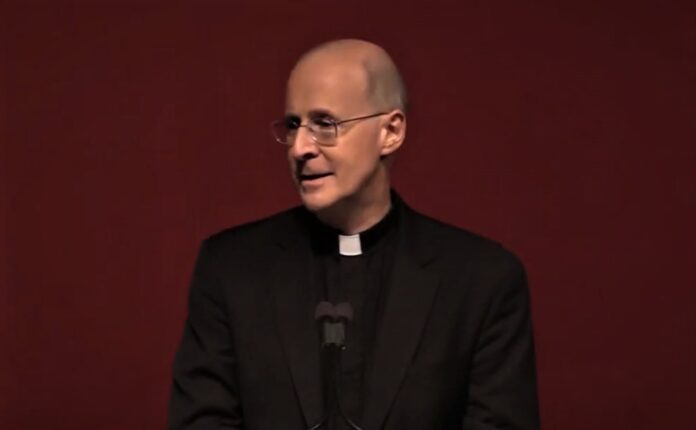
CV NEWS FEED // Father James Martin, SJ, editor of America Magazine and celebrated author, tweeted a lengthy commentary on the upcoming Supreme Court case 303 Creative vs. Ellis.
The case, set for oral arguments in the 2022-2023 term, centers on Lorie Smith, owner of 303 Creative, LLC. Smith, who designs wedding websites, challenged a Colorado law that would forbid her from posting a message on her website “explaining her religious objections to same-sex weddings.”
According to a brief filed by the Alliance Defending Freedom (ADF),
Colorado asks this Court to do something it has never done—authorize the government to compel speakers to speak certain messages while silencing others. The Court should decline that invitation, as it would be a step back for the First Amendment and our nation.
“Once again the Supreme Court will take up the question of whether someone can refuse to do business with a same-sex couple because it offends their Christian beliefs,” Fr. Martin wrote in response to the news. “But notice that these business owners don’t have a problem with (nor should they) serving non-Christians.”
Martin went on to argue squarely against the religious freedom of “Catholic business owners,” employing scare quotes around the term “religious liberty.”
“In the guise of ‘religious liberty,’ Catholic business owners could deny services to Protestants and, more broadly, Christians could deny services to Jews” and other non-believers, Martin wrote.
“The only matter that seems to offend the consciences of these few Catholic and Christian business leaders is same-sex marriage,” he concluded. “So let’s not call this a case of ‘religious liberty.’ Let’s call it what it is: homophobia.”
CatholicVote responded:
ADF General Counsel Kristen Waggoner spoke to the case, saying, “Free speech is for everyone. The government can’t force anyone to say something they don’t believe.”
Lorie’s decision to design a project always turns on what the message is, not who requests it. When she creates a graphic design or website, she communicates a message consistent with her beliefs. And the First Amendment protects every American’s right to express ideas without fear of government punishment.
While the date for the case’s oral arguments has not been set as of this writing, the Supreme Court has agreed to hear the case this term. A ruling is expected in June 2023.







